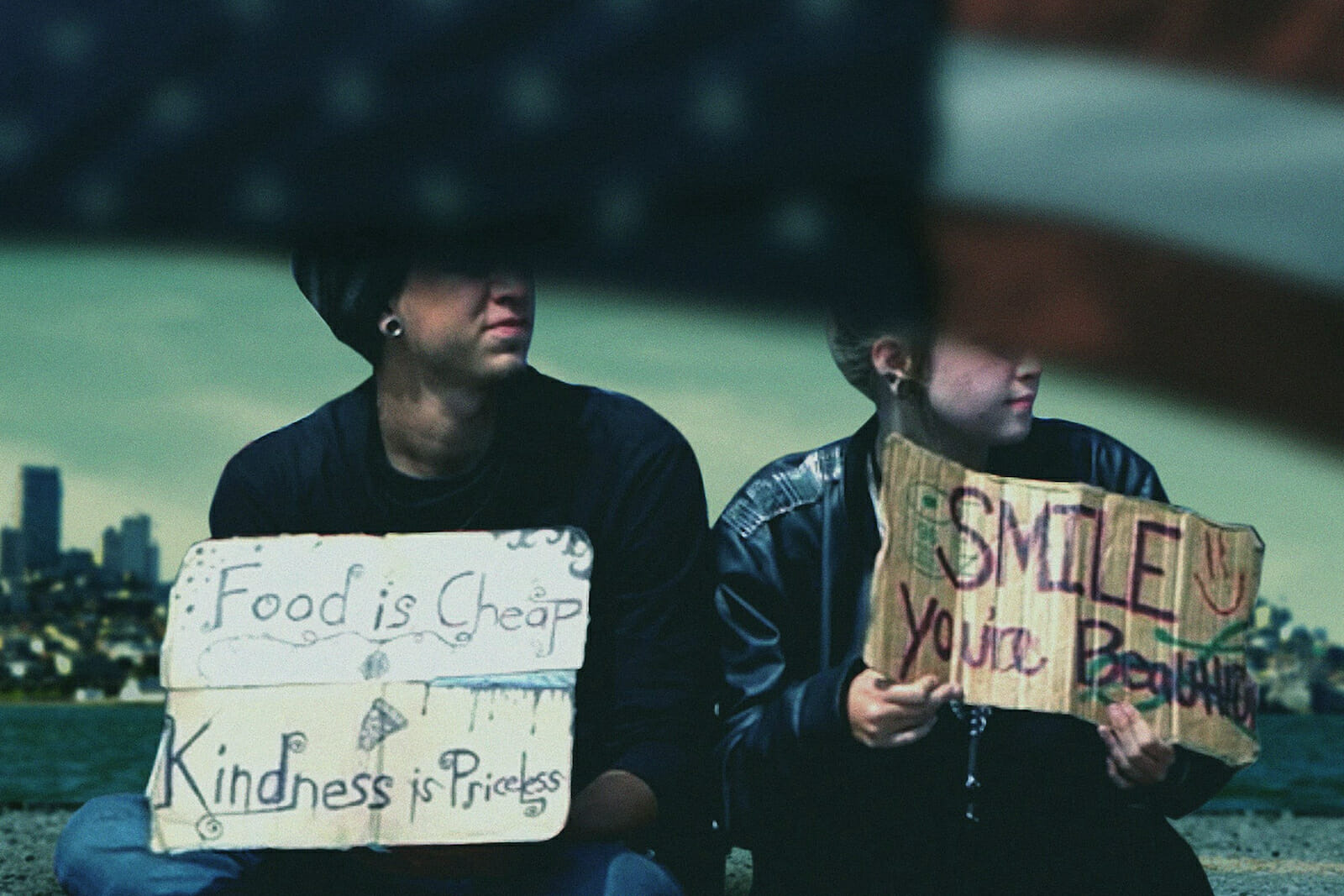
‘Lost in America’ Review
The thought of anyone being homeless should not sit well with any of us. And whether you are a parent or not, the thought becomes even less tenable when kids are involved. Director Rotimi Rainwater accomplishes two goals with Lost in America: making it personal, and revealing the scope.
“These are their stories.” Rainwater introduces us to several young homeless folks around the country and allows each to explain their situation in their own words. As you might expect, the stories are painful to tell and excruciating to hear. The project spans about four years (2013-2017) and Rainwater revisits some of these folks more than once. In addition to hearing from these homeless youngsters, we learn how little data exists, and how, as a country, we seem to be pretending the problem is minor and not worthy of more attention. With youth homeless estimates ranging from 48,000 to 2.8 million, one need not be a statistical analyst to recognize faulty and incomplete data.
We simply don’t know how many homeless youths live on our streets, and we don’t have the background information to know why they are there. Celebrity activists interviewed include Halle Berry, Jon Bon Jovi, Mylie Cyrus, Tiffany Haddish, and Sanaa Lathan, as well as co-producers Rosario Dawson and Jewel. Additionally, we learn about the efforts of Senator Patrick Leahy (D-VT) and Senator Susan Collins (R-ME) as they promote their bi-partisan “Runaway and Homeless Youth and Trafficking Prevention Act” to re-authorize and update the specifics of the “Runaway and Homeless Youth Act” first passed in 1974.
The film breaks down four key elements faced by homeless youths: the failure of the Foster Care system, Sex Trafficking, LGBT affiliation, and the underfunding and scarcity of shelters. Actress Tiffany Haddish recounts her experience with Foster Care. We learn that 300,000 youths are targeted for sex trafficking each year, and the average age is 12. Surveys report that 40% of homeless youths identify as LGBT, and this one issue has prevented additional government funding.
The most poignant sections of the film occur when we hear directly from the homeless. The word “safe” is utilized numerous times, because being alone is scary and dangerous. One of those interviewed states, “When the sun goes down, it’s a completely different atmosphere.” Chilling words. The only misstep for the film comes from Rainwater’s decision to include entirely too many talking heads. We simply can’t keep up with who is talking and what their relationship to the homeless situation is. He does make the point that many are aware of the issue and that 5,000 homeless youths die each year, but it’s the personal accounts – including his own – that make an impact. It’s also the first film this year where someone uses “burrito” as a verb. As the film concludes, Jewel’s song “No More Tears” plays as the director provides updates on the individuals we met. Happy endings are not typical.
Lost in America is available on Amazon Prime.
